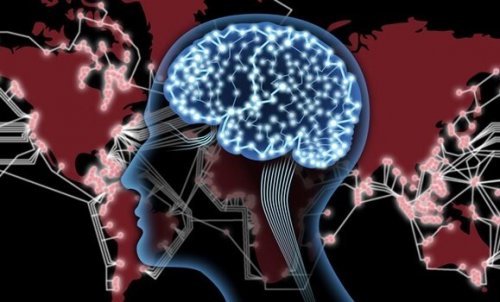When the Internet arrived, it changed the world and the people in it. It’s a network that accelerated globalization, access to information, and constant social communication. This has a series of advantages. For example, it allows us to get to know realities that are extremely different and distant from our own. However, far from fostering empathy and openness to diversity, the Internet encourages intolerance.
Discriminatory attitudes have always existed. As human beings, we tend to point to anything that’s different. This can be observed in any situation and historical context. We also tend to hold on to our beliefs and ideologies, even if they’re based on prejudice or cause harm to others. Indeed, our brains don’t seek truth or justice, but the comfort of what we know.
Moreover, the Internet has a number of characteristics that amplify these trends. Therefore, if we don’t make conscious use of it, we fall into the trap of polarizing ourselves. Find out why here.
Why the Internet encourages intolerance
Social media and other virtual platforms are excellent ways of making our opinions and experiences visible. For example, we can all explain how we’re feeling, talk about what we’re experiencing, and share our opinions with millions of Internet users from all over the world on our cell phones.
In fact, without this tool, the voices of minorities would barely be heard or we’d find it difficult to ask certain questions. Consequently, we could be forgiven for thinking that the Internet enriches us and broadens our sights. However, the reality is far from so idyllic.
As a matter of fact, on social media, hate crimes are growing every year. Indeed, 34 percent of young people claim to have suffered abuse on the Internet. basically, this is because the cyber world differs from the real one in many aspects. Furthermore, it has its own rules and conditions that aren’t always beneficial.
The protection of anonymity
In real life, there’s a certain social control that prevents us from being abusive, rude, selfish, or discriminatory. That’s because our actions are linked to us. So, if we behave inappropriately, others will respond by kicking us out or pointing out our bad behavior. This rejection to which we expose ourselves leads us to comply with the rules of coexistence and moderate our actions.
However, on the Internet, this doesn’t happen. By placing ourselves behind the screen, we can anonymously pour out opinions of hate and avoid their consequences. In fact, we could even be strengthened by receiving the approval of like-minded people, those who, ordinarily, on a daily basis we wouldn’t come across or who we wouldn’t dare validate. Consequently, in the virtual world, intolerance can lead to fame.
Algorithms confirm opinions
As we said earlier, we all constantly want to reaffirm our opinions. To do this, we look for information that supports them and ignores those that contradict them. This phenomenon, known as confirmation bias, is magnified on the Internet by the operation of algorithms.
Social media, apps, and other platforms are configured to understand what we like, what we’re looking for, and how we think. Moreover, they show us increasingly more of it. With each interaction, this feedback loop increases and we move further away from our diverse opinions and realities. Finally, the content we consume is an incessant reproduction of what we already think and only serves to polarize us further.
Our world, our rules
Finally, the Internet encourages intolerance because it accustoms us to a world governed by our own guidelines. When we’re online, we can access all kinds of content from anywhere. We see what we want when we want and we scroll up or down or close the screen if we don’t like it. We’re given everything in accordance with our preferences and desires and we end up getting used to this.
As a result, when we have to face real life, relationships, jobs, and other groups, they disappoint us because, unlike the Internet, they don’t fit with what we want or need. In effect, without realizing it, we’ve lost the ability to negotiate, coexist and cooperate with those of us who are different from ourselves.

The need to keep an open mind
All of the above happens when we act out of inertia and let ourselves be carried away by certain psychological mechanisms that operate automatically in all of us.
On the other hand, the Internet can be an excellent tool if we know how to use it. In fact, it encourages open-mindedness. However, we must be willing to get out of our bubbles, those that our minds and the algorithm build, and venture into the uncomfortable and unknown.
Consuming varied content of the kind that challenges our beliefs, and approaching it with curiosity, can be extremely beneficial. It can enrich us and make us more empathetic and tolerant. Furthermore, we must remember that virtual anonymity legitimizes attitudes that, in the physical world, we’d never put into practice. it’s only by making respectful, conscious, and humane use of the Internet that we can become better people.
The post Why Does the Internet Encourage Intolerance? appeared first on Exploring your mind.



















Comments